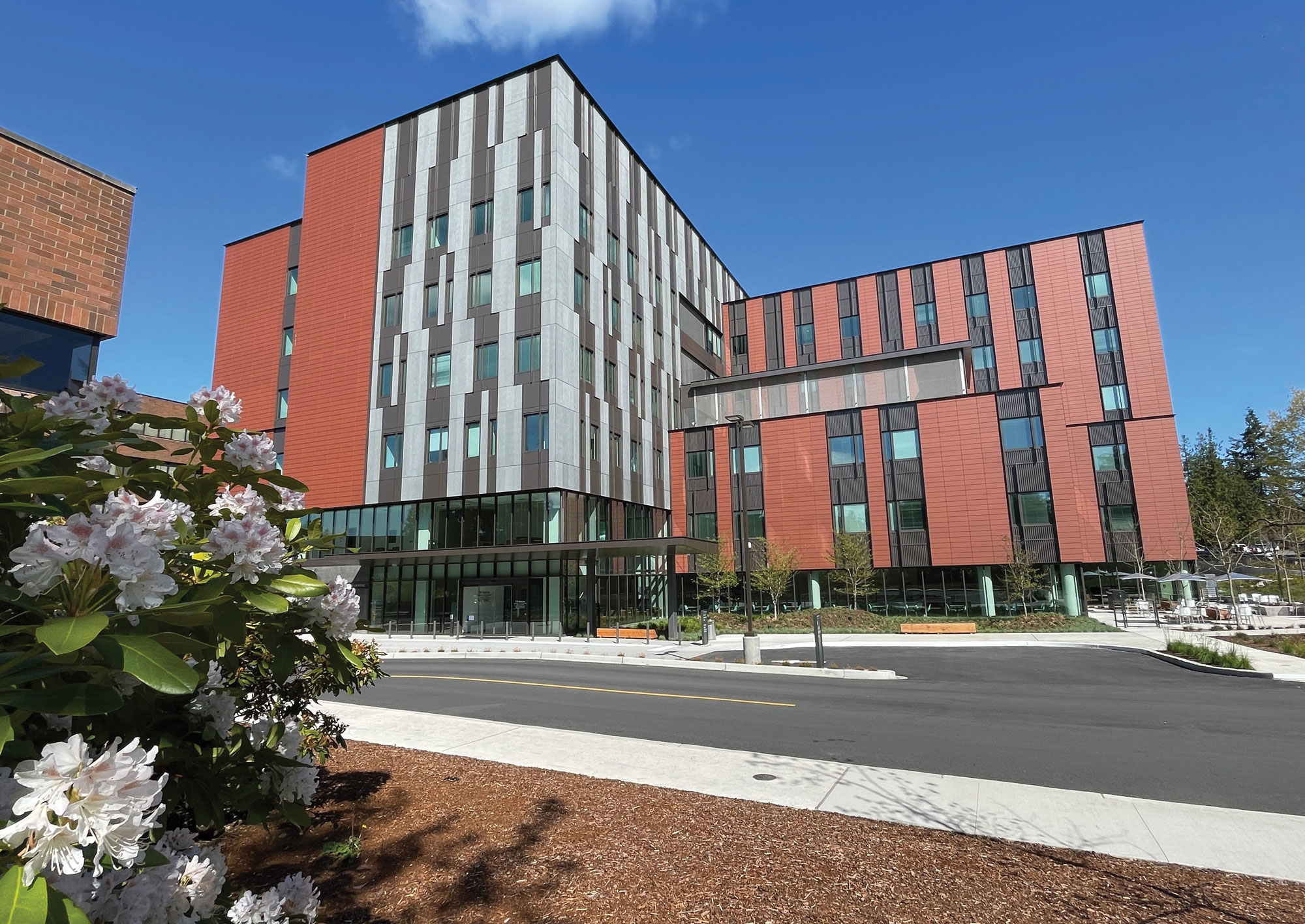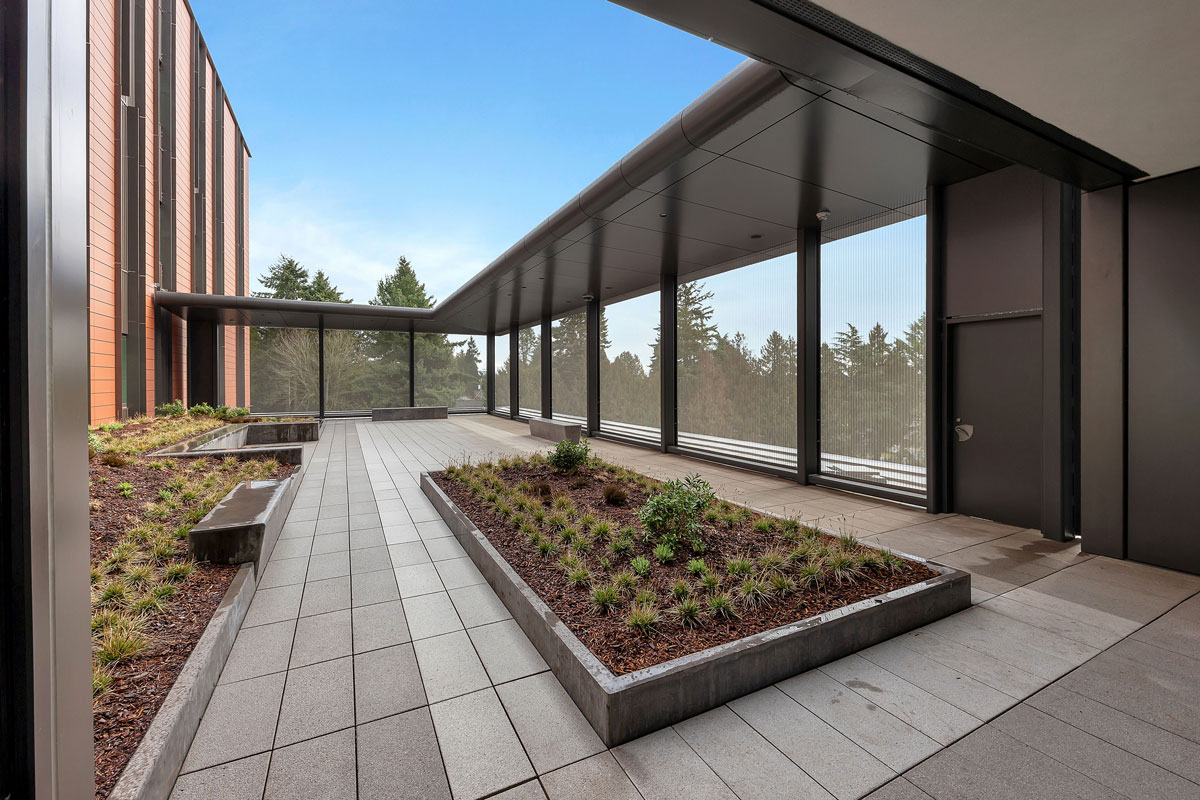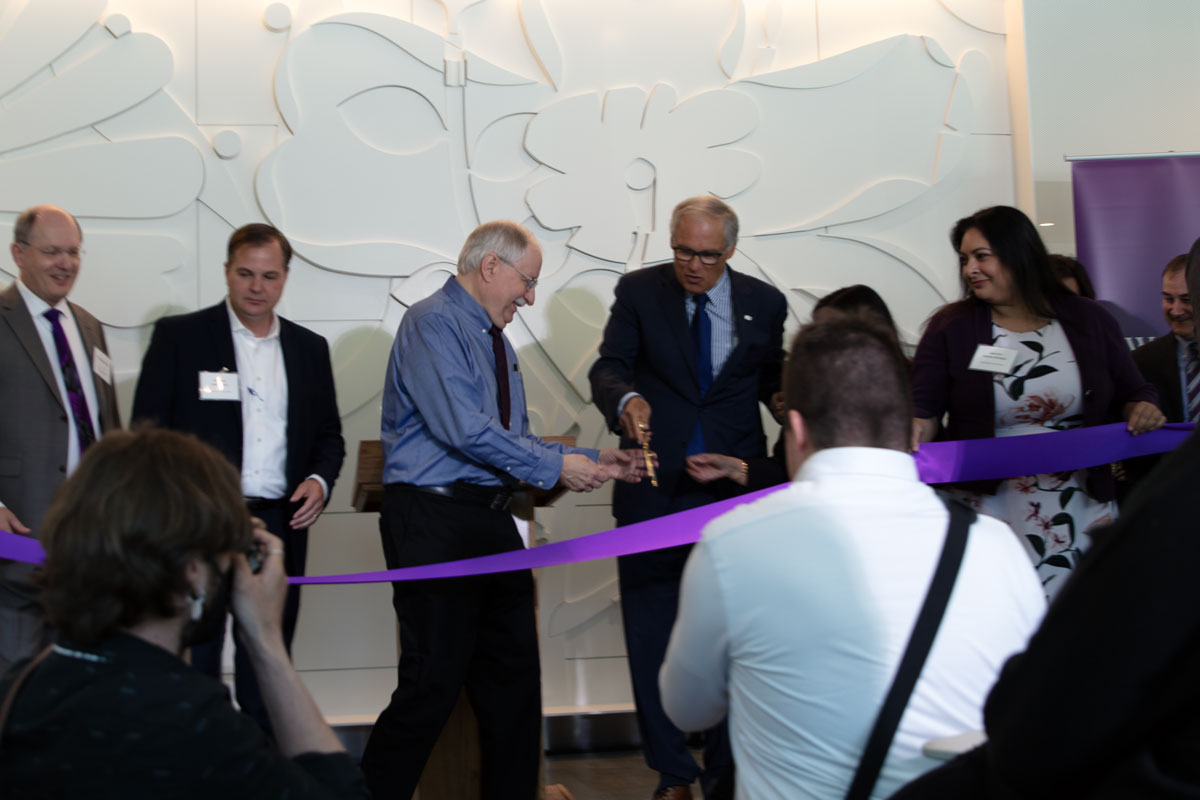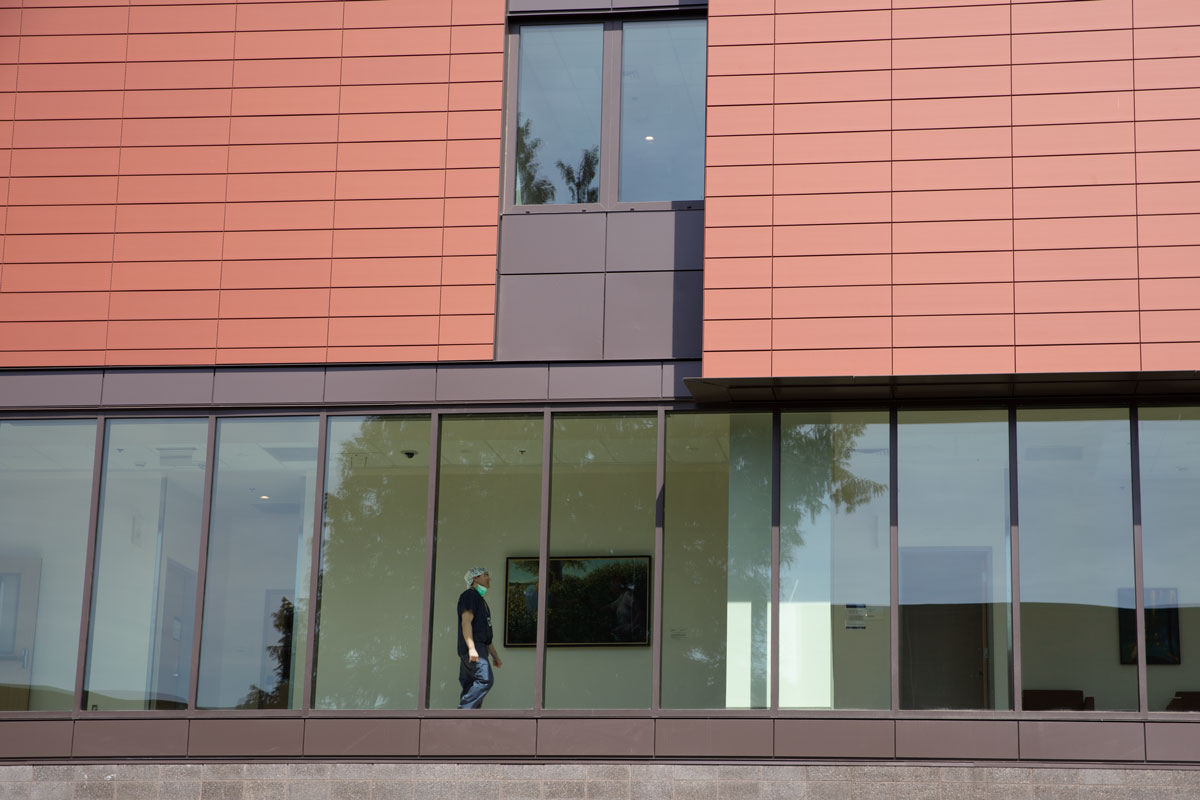Care for all Care for all Care for all
UW Medicine opens a new center for behavioral health care and for training the next generation of mental health professionals.
By Caitlin Klask | Photo by Tara Brown Photography | September 2024

Washington residents might be frustrated with the scarcity of mental and behavioral health care in the state. Only 12% of us live somewhere we can expect our psychiatric needs to be met, and 41% of Washington’s counties don’t have a single practicing psychiatrist.
After years of advocating, planning and building, and a $244 million investment from the state, UW Medicine has opened the Center for Behavioral Health and Learning, an expansion of existing services on UW Medical Center’s Northwest campus. “This is something we can be proud of … having the first behavioral-health teaching facility built from scratch in the Evergreen State,” says Gov. Jay Inslee, ’73, who had proposed the hospital in 2018 as part of a plan to transform Washington’s behavioral-health system.
There are just over 1,000 psychiatric hospital beds in Washington. The CBHL adds 150 more. Of those, half are designated for patients on long-term, civil commitment status, involuntarily admitted by courts for treatment of serious and persistent mental health problems that make it impossible for them to safely live in the community.
The rooms serving patients on civil commitment status feature hallways with clear sight-lines and windows that provide natural daylight and display the towering trees of the UWMC Northwest campus. Patients stay here for 90 to 180 days, “so we designed it with elements any of us would look for if we were trying to find an apartment, for example,” says Dr. Ryan Kimmel, ’97, ’01, chief of psychiatry for UW Medical Center, who helped design the building. Attendees of the grand opening this spring toured private bedrooms, peaceful common areas with floor-to-ceiling photographs featuring Washington landscapes and balconies that provide fresh air.
- A terraced patio allows patients to see out without letting passersby see in. Photo by Tara Brown.
- Governor Jay Inslee and Representative Frank Chopp cut the purple ribbon at the CBHL grand opening. Photo by Caitlin Klask.
- The facility is gradually filling staff positions as patients are admitted. Photo by Caitlin Klask.
Another 50 beds on two floors serve patients who have both psychiatric and medical/surgical needs. “A lot of people have significant medical issues and significant behavioral health issues, and the two often make each other worse,” says Kimmel. “If we have a [psychiatry] patient with chest pain, they can remain hospitalized here and continue to see the behavioral health providers they already know.” Finally, the 25-bed geropsychiatry unit provides unique services to older patients with neurodegenerative, cognitive and mental impairments.
The CBHL also houses the Garvey Institute Center for Neuromodulation, a state-of-the-art program that offers treatments like transcranial magnetic stimulation, electroconvulsive therapy and other novel therapeutics. Neuromodulation treatments can improve recovery for a variety of conditions including major depression, bipolar disorder and schizophrenia. The new center also creates opportunities for trainees to learn the latest in neuromodulation and for clinician scientists to explore novel therapeutic approaches in interventional psychiatry.
“This is something we can be proud of ... having the first behavioral-health teaching facility built from scratch in the Evergreen State.”
Governor Jay Inslee, ’73
In addition to providing life-saving care, UW Medicine, which has the largest psychiatry residency in the nation, is training the next generation of health care professionals in collaborative, team-based mental health care. Recent innovations include involving families and caregivers as members of the care team. The facility also houses programs to address burnout in the workforce and a telepsychiatry consultation program to assist rural and overburdened providers statewide with caring for people with complex mental health and addiction problems.
“Any provider, whether they’re a prescriber, nurse or social worker, can call our psychiatry consultation line and talk to a UW faculty psychiatrist,” says Kimmel. “It enables providers to better treat what’s in front of them when there are no available specialists in their community.”
Systemic issues don’t end after behavioral health patients find care. “For too many of our neighbors, emergency visits to a hospital are followed by discharges to the street,” says state representative Frank Chopp, who sponsored the house bill establishing the CBHL. For some patients, the availability of longer-term treatment will help with a more complete recovery. For others, training of family and caregivers and involvement of peer bridgers and other resources could help with a successful transition into the community.


